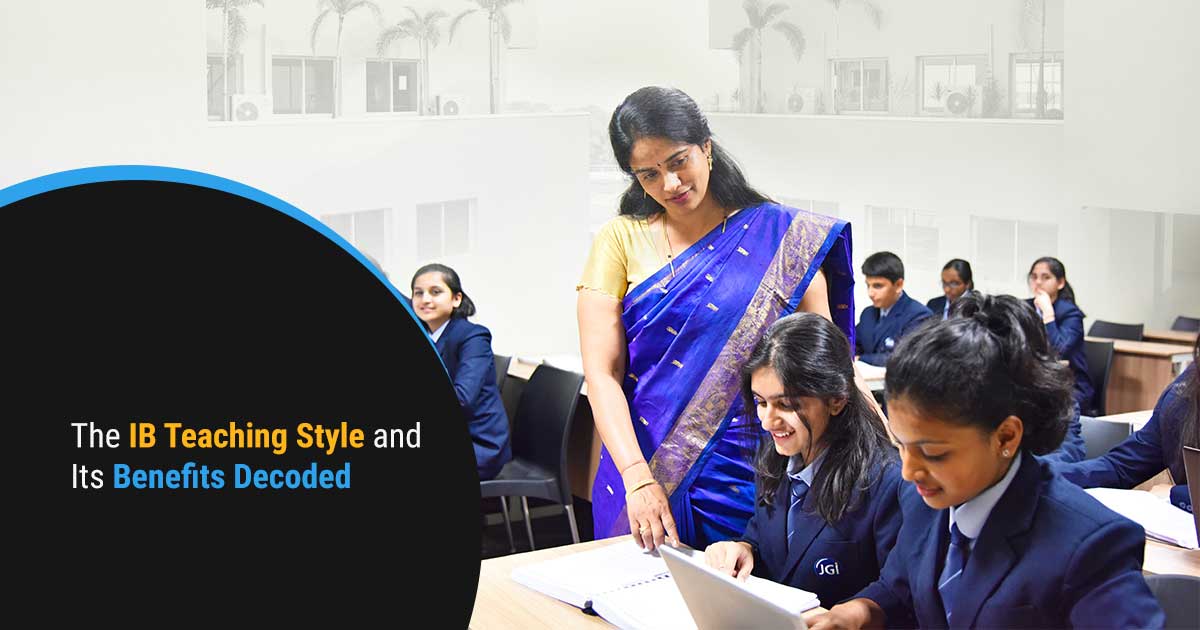

Did anyone know that International Baccalaureate (IB) is one of the rigorous international formats of education? Yes, initiated in 1968 in Geneva, Switzerland, the IB programme is one of the most well-known and popular curricula imparting international education to students across 140 countries of the world. With its wide presence in more than 3000 schools globally, IB is designed to offer a comprehensive learning experience for students aged between 3 to 19.
So, what are the programs offered by the International Baccalaureate?
The IB Teaching Style
One of the most interesting facts about an IB curriculum is that teachers act as facilitators rather than just lecturers. Along with focusing on covering the component of a pre-defined syllabus, the teachers focus on empowering students to think critically, analyse information, and implement their learnings in real-life situations. They also encourage the students to take an active role in their education and guide them through the learning process through inquiry and practical approach towards education.
Wonder how? Come, let’s understand how the IB teaching style works.
Benefits of IB Curriculum
We are slowly witnessing an increase in demand for the IB curriculum in India. Wonder why?
It is because parents want their children to adopt more practical-based learning that will equip them with real-life skills to face the world. The IB board in India envisions providing global exposure to the future citizens of the country by making them future-ready with appropriate skills and competencies.
Let us look at the benefits offered by the IB curriculum!
Learning beyond the four walls of the classroom
The educational framework of the IB is broad and balanced, allowing students to strike a connection between theoretical and practical experiences. The learning strategy is based on real-world situations that not only make the learning experience enjoyable but also ensure that students know what they are learning. This style of teaching stimulates students to develop critical and analytical skills to apply them in ‘real life situations’.
Global citizens of tomorrow
We all know that today’s children will be our country’s future. As the world is constantly evolving, this future must be globally competent to face the change and also be the change. As it is essential to ensure their holistic development, the IB board in India helps students develop emotional intelligence, and interpersonal communication in students. This helps them to think out of the box and adapt to multiple environments. The IB programme encourages the students to mingle with students of different cultures, races and nationalities, allowing them to push their boundaries, kindle their curiosities and expand their learning fundamentals.
International recognition
IB’s global presence across 140 countries makes it a familiar and respected choice for students seeking an internationally recognised education. Universities around the world recognise and value the IB diploma and certificates. The students can participate in active discussions, research and professional development initiatives developed by the IB curriculum in association with international organisations, communities, government, and other stakeholders.
Way Forward
So, we learned that IB surpasses the common fundamentals of what a ‘conventional education’ is all about. It tests the students’ perseverance and motivates them to break the barriers of traditional methods of education and adopt a practical-based learning approach. IB’s comprehensiveness, inclusiveness, and global perspective make it a suitable curriculum for students of all age groups across the world.
Recent Blogs
IGCSE Full Form
What is the International Baccalaureate?
IBDP Full Form
CIE Board Full Form
CBSE Full Form
Site Designed and Maintained By : Office of Communications, JAIN Group All rights reserved.